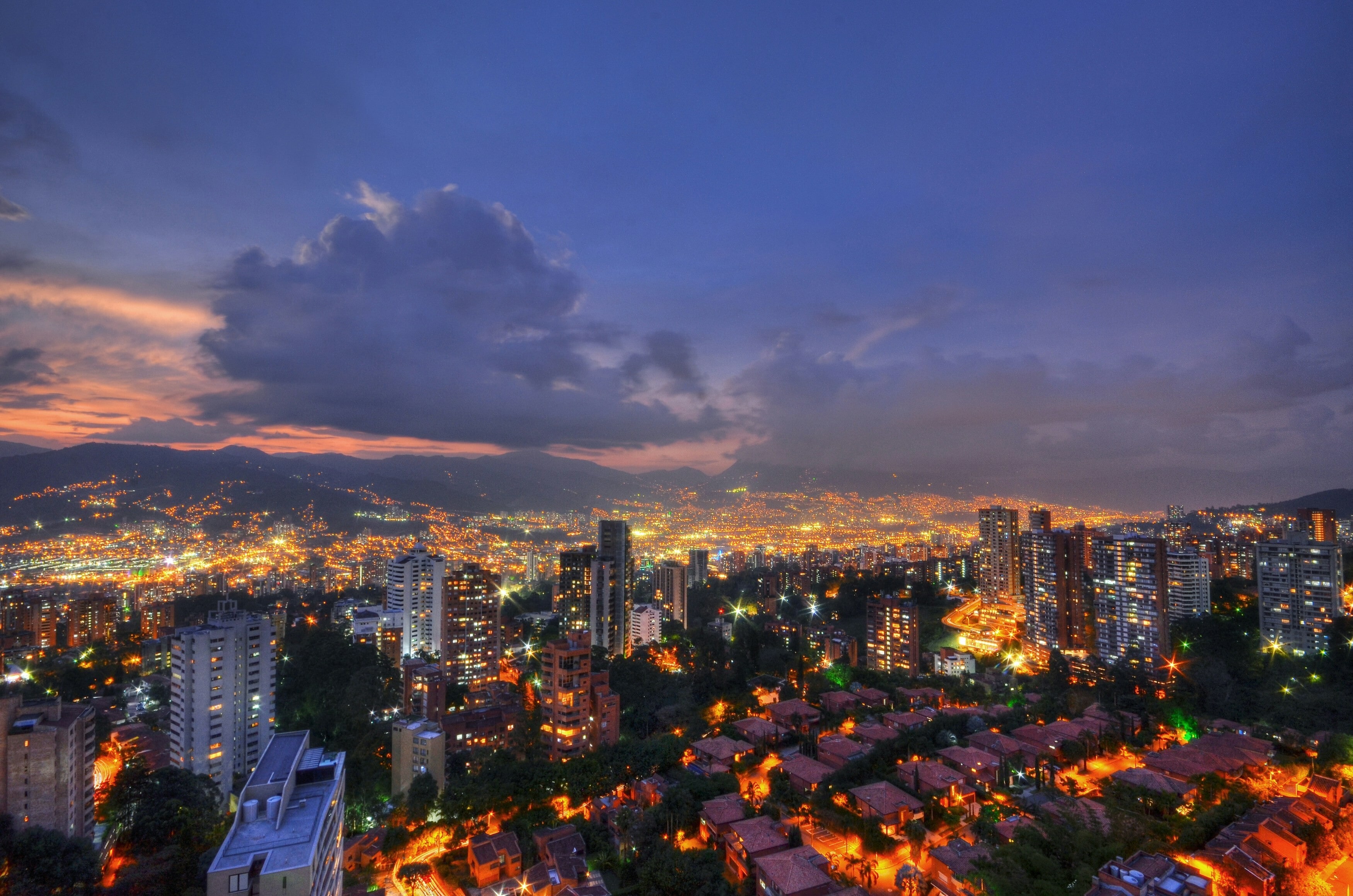5 ways governments and city leaders should be collaborating on decarbonization
The state of São Paulo, Brazil is following the Paris Agreement towards decarbonization
Image: Governo do Estado de São Paulo
Stay up to date:
Cities and Urbanization
• Cities need the support of their parent government to achieve net-zero.
• The state of São Paulo, Brazil has put in place technological platforms and best practice for decarbonization.
• Money remains an insurmountable need to put in place such programmes.
Governments all over the world are gearing up to try and meet net-zero carbon targets. Yet it is clear that only through effective collaboration with city-level leadership can this transformation take place. How can national governments support concrete actions for net-zero carbon cities?
The state of São Paulo, Brazil complies with all the requirements of the Paris Agreement, and it has reiterated its commitment to the Sustainable Development Goals (SDGs). It believes that empowering municipalities to implement concrete action towards net-zero carbon is the most effective approach to achieving large-scale impact on climate change.
Below are the key learnings from the state of São Paulo in this endeavour:
1. Raise awareness of the importance of net-zero carbon cities
The prioritization of resources, time and effort is only a viable choice if local leaders understand the benefits associated with net-zero carbon cities, such as economic savings, better infrastructure resiliency, improved data management and, most importantly, higher quality of living standards; as well as the critical nature of the issues associated with the increase of carbon emissions.
With that in mind, the state of São Paulo established a SDG Commission with members of all areas of the government (Economic and Social Development, Environment, Transport, Education, Justice and Partnerships), as well as representatives of civil society, including the private sector (through the UN Global Compact), academia and specialized NGOs. The commission has developed many initiatives to raise awareness of the SDGs, including workshops at city level with local organizations and public managers. Regional universities have developed research on the SDGs, local leaders are creating SDG City Councils and Santana de Parnaíba, in the state of São Paulo, was the first Brazilian city to participate in a UN Voluntary Local Review.
2. Advise on available solutions
Often local leaders understand the importance of implementing net-zero carbon cities, but struggle to see a clear path to developing the needed solutions. Limited access to information and lack of regional technical expertise are some of the most common difficulties faced – particularly in small cities and/or in the countryside. State and federal government have an important role in centralizing knowledge and tools, and connecting them to city leaders.
The Plataforma Pró-Municípios (“Pro-Cities Platform”), developed by the Technological Research Institute (IPT) of the state of São Paulo, aims to facilitate this connection. It works as a hub to which city leaders can reach out and receive assistance – for free – on city-related technological solutions. The institute serves as adviser to pinpoint the particular issue the city is facing, present the available solutions in the market (or propose a new solution), and oversee implementation. For example, IPT has supported the cities of Mairinque, São José do Rio Preto and Novo Horizonte in developing their construction and demolition waste-management plans, enabling them to reuse the residue and avoid the emissions associated with the production of virgin raw materials. IPT is also currently supporting the city of São Paulo regarding a new incentive law for increasing the use of solar energy. The state government is also currently developing a next-generation smart-cities platform and certification process for municipalities.
3. Educate on technology procurement
Building the procurement capacities of city governments to make technological purchases is key to creating an integrated approach to energy systems in cities. For example, purchasing cloud-based monitoring systems for smart grids might pose a challenge given its dynamic pricing system, as well as the complexity of detailing the solution to the general public.
Brazil enacted specific laws to address Pre-Commercial Procurement (PCP) and the Public Procurement of Innovative Solutions (PPI). However, there is a widespread consensus that such regulations are seldom applied, hindering the use of public procurement to foster innovation. There are many reasons for that: Advanced technologies are still in an early stage of development and therefore may not price competitively against currently existing ones already on the market. Public buyers may also be wary of acquiring large-scale innovative solutions as a first move.
São Paulo has published a state innovation and technology law that fosters investments in more efficient technologies at the municipal level, as well as in public-private partnerships. The state is also publishing a Public Procurement of Innovation toolkit that can assist mayors in streamlining procurement documents such as Terms of Reference (ToR), Requests of Information and draft PPI and PCP contracts, and in accelerating their technological acquisitions. The toolkit will be available online.
4. Facilitate the exchange of best practices
Though each region has its own realities, they also face many common issues. Coordination from a state or federal government is key to guaranteeing that resource allocation will be optimized. This role includes connecting local leaders and identifying solutions that will work for a certain profile of city, communicating the best case to public leaders who can leverage this learning.
In the state government of São Paulo, a real-time panel is currently being elaborated to consolidate all the smart-cities solutions implemented and in development in all cities of the state. This platform will be public and online, reducing barriers of distance and allowing city leaders to learn from their peers in several categories of solutions, including systemic efficiency. Technology providers from the private sector can also leverage this data to understand potential markets for their offerings. Moreover, São Paulo has a regional secretariat in charge of the relationship with municipalities and regional development.
5. Co-invest
Money – the issue one cannot run away from. If all the above are successful but cities are under budget constraints, no concrete action will come to pass. The allocation of financial resources from federal and state governments to address city emissions is needed to accelerate the transition.
With that in mind, the state has established an annual contest in which cities apply their projects in several topics, including net-zero carbon, clearly stating targets measured through KPI improvements. At the end of the year, projects that perform best are awarded financial prizes. Cities “compete” with others of similar size, allowing the small ones to actively participate. This foments the development of local solutions: In 2020, 440 cities from São Paulo state registered more than 8,800 projects. Campinas, for example, won for its improvements in energy efficiency based on a smart-lighting infrastructure project.
Furthermore, through Ideagov, a mission-oriented, state-level programme to hire start-ups to solve government problems, and Fapesp, Brazil’s main scientific research agency, the state has also invested directly in start-ups and institutions developing systemic efficiency solutions so they can be more widespread and price-competitive.
How is the World Economic Forum supporting the development of cities and communities globally?
The state of São Paulo reinforces its commitment to a path of sustainable development seeking long-term prosperity for its citizens. Mobilizing action to advance on the Net Zero Carbon Cities agenda is key for this development model.
• We welcome stakeholders to join us in this journey. To learn more, please visit the programme webpage and see the recent paper Net Zero Carbon Cities: An Integrated Approach.
Don't miss any update on this topic
Create a free account and access your personalized content collection with our latest publications and analyses.
License and Republishing
World Economic Forum articles may be republished in accordance with the Creative Commons Attribution-NonCommercial-NoDerivatives 4.0 International Public License, and in accordance with our Terms of Use.
The views expressed in this article are those of the author alone and not the World Economic Forum.
Forum Stories newsletter
Bringing you weekly curated insights and analysis on the global issues that matter.
More on Urban TransformationSee all
Charlotte Edmond and Rebecca Geldard
August 19, 2025
Luis Antonio Ramirez Garcia
August 11, 2025
Michael Fröbel and Stanislas Hillen
August 8, 2025
Jeff Merritt and Vivian Brady-Phillips
July 25, 2025



